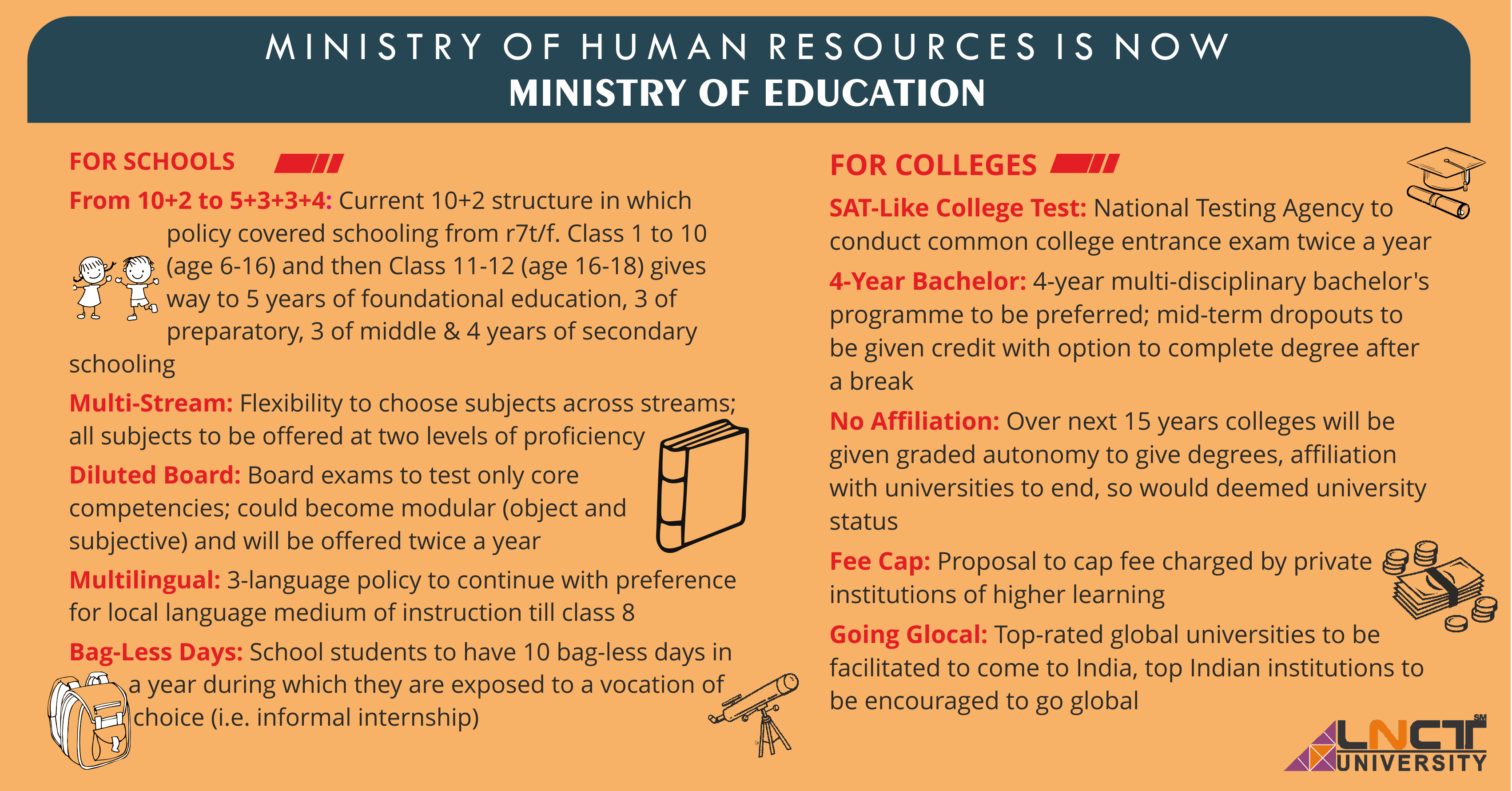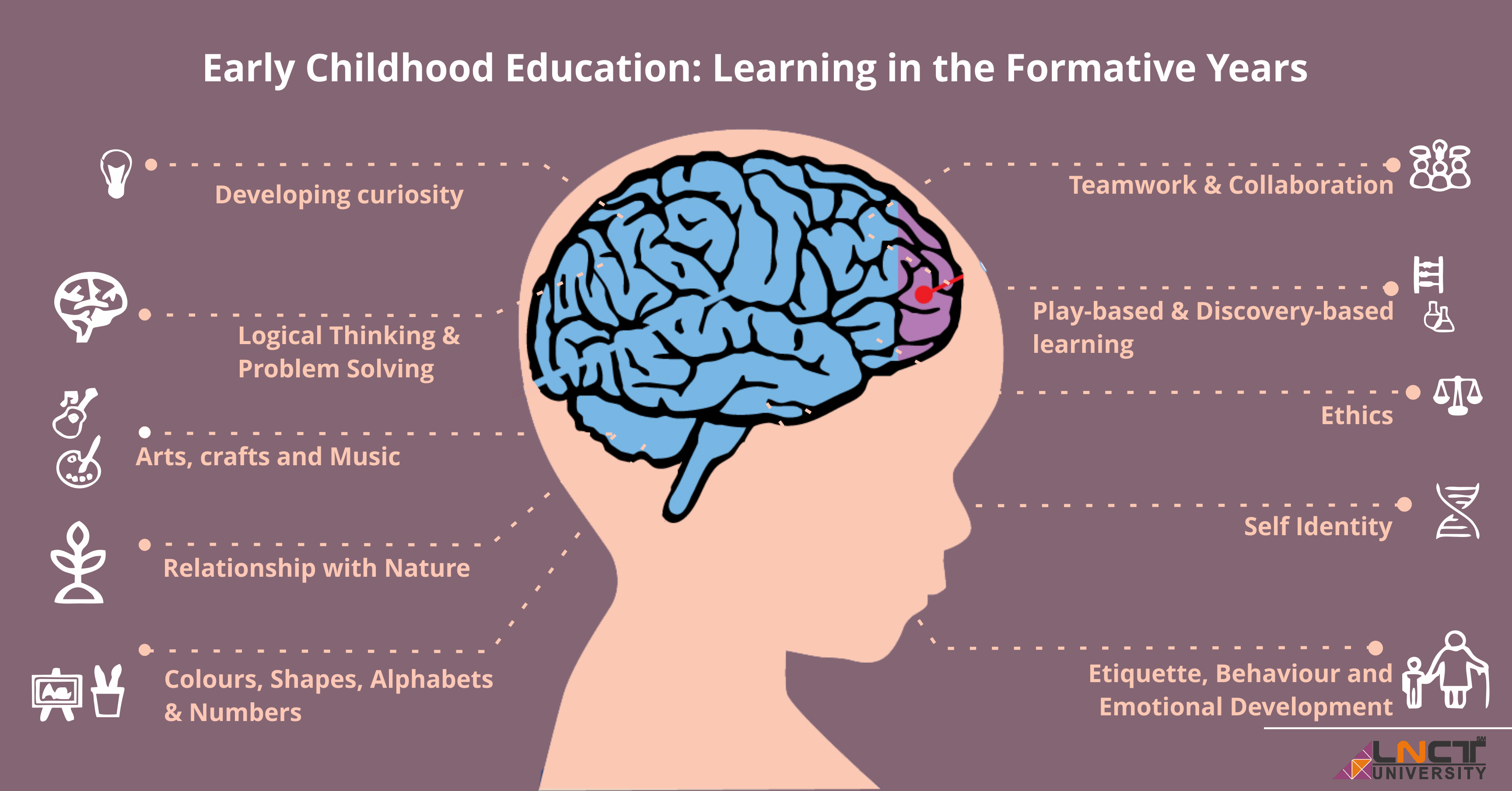New Education Policy 2021: Explained
The New Education Policy, which was launched in July 2020, is an attempt by the Government of India to revolutionize education in the nation. The Union Cabinet approved the policy which they believe will overhaul the education system of the country.
New Education Policy Implementation 2021
Many new aspects of education including co-curricular activities and vocational studies which were formerly not given much importance will be actively attended to in this New Education Policy. The New Education Policy as the ISRO chief, K.Kasturirangan says aims to make ‘India a Global Knowledge Superpower.’
The Covid-19 outbreak, as though contributed to some delay in its implementation but, it can be agreed that the changing patterns of study and the shifting of focus from academics to co-curricular activities, will surely contribute to the holistic overall development of the child, and make him or her well equipped, skilled and qualified to adjust and cope in the coming world.
Prime Minister Narendra Modi, in one of his recent interviews urged the teachers to explore their own capabilities and how can it be manifested for the benefit of the students. The New Education Policy, stresses on teacher-student relation and how teachers can contribute in the overall development of the students.
Indian Prime Minister on New Education Policy
PM Modi: National Education Policy moves focus from ‘what to think’ to ‘how to think’
Modi urged students to aspire and work hand towards their dreams. While addressing a virtual meeting he stated, “What students can achieve depends on inner strength. If institutional strength is provided, they can accomplish what they aspire. We have to give opportunities to youth according to their potential. Our efforts towards this are the only tribute to Babasaheb Ambedkar.” From this it is clear that the Indian Government is all set to plan a system that helps to meet the potential of aspiring students, and motivate them in achieving their dreams.
When talking about ‘Aatmanirbhar Bharat’ or ‘Self-reliant India’, Prime Minister Modi, drew our attention on the importance of skilled youth in the current times. It is only and only when the natives our skilled could we hope to achieve this goal.
In many ways, the New Education Policy is the first step in achieving this self-reliance. Education is a subject of the concurrent list, therefore active participation from both the central and the state government is required when it comes to the implementation of this policy. New Education Policies come into existence, every years, this new policy under the Prime Ministership of Narendra Modi, is third till date.
PM addresses conclave on Transformational reforms in higher education under NEP
New Education Policy : Changes introduced in the New Education Policy
This new policy bring drastic changes in the Education sector, one of the most significant of which is the ‘5+3+3+4’ framework which replaces the former ‘10+2’ framework. The ‘5+3+3+4’ design is constructed in accordance with the age groups, the foundational age of 3-8 (5 years), the preparatory stage of 8-11 (3 years), the middle age of 11-14 (3 years) an finally the secondary stage of 14-18 years of age (4 years).
The policy proposes to teach mother tongue and regional language to kids of pre-school programs, and also directs to all institutes and universities to become multidisciplinary in the next two decades. By 20240, the government aims to collaboratively implement the new reforms all over the nation. Sufficient resources and funding are two very crucial factors for the same.
The Indian Government plans to establish committees based on subjects with important members from relevant ministries at both state and central levels, collaboration of the two levels is important for the efficient development of these programs.
The State Education Department, School Boards, NCERT, Central Advisory Board of Education, National Testing Agency, the HRD Ministry along with many others are some bodies that actively constitute and work together for the changes that the NEP will bring. The policy aims to open up Indian Higher Education to foreigner players. The NEP, also introduces many scholarship programs in order to assist the students in enhancing their skills and knowledge.
| Major recommendations offered by the National Education Policy. |
|
The higher Education Commission of India will replace AICTE & UGC. |
| The Indian Higher Education will open to foreign students. |
| The establishment of a National Research Foundation. |
| Flexibility in Institutions for Master’s Program. |
| The four year multi-disciplinary under graduation program will be re-introduced with suitable exit options. |
With the correct implementation of the policy, each and every child will be exposed to learn at least one or more vocation. The aim of vocational studies is to enhance and develop necessary life skills in individuals apart from academics such as, metal work, electric work, carpentry along with others in the preparatory and middle ages. In the next 5-10 years, more than 50% of students will have vocational exposure through school and other institutes that provide higher education. A system of ‘bag-less’ schools, is also likely to take form and reduce the unnecessary burden of thick and lengthy books off the students.
On the occasion of Ambedkar’s birth anniversary, Prime Minister Modi, highlighted the revolution that the New Education Policy will bring, he responsibly urged aspirants to work effectively on the framework developed by our democratic leaders and actively work forward, in the field of Education. “Babasaheb Ambedkar has given a strong foundation for us to take forward all our democratic values after Independence.”
In the spirit of democracy and in order to become sufficiently self-reliant, these changes in the education system are much needed and surely by all means, help in inculcating essential values in the youth of the country, so as to make them able and skilled in making a mark in the world.
The emphasis on regional languages, vocation and the adoption of 5+3+3+4 system are just some few necessary and preliminary steps that the government plans on undertaking for the establishment of an ‘Aatmanirbhar Bharat’. It is also important to note that it is only and only with the collective working of the central and state government on this topic of Education, which falls under the concurrent list, can the policy be efficiently administered. It can be collectively agreed that the New Education Policy will revolutionize the sector of education and by all means make the students of India ready to face the global world. The New Education Policy follows world standards, and is set to make India a ‘Global Knowledge Superpower.’



